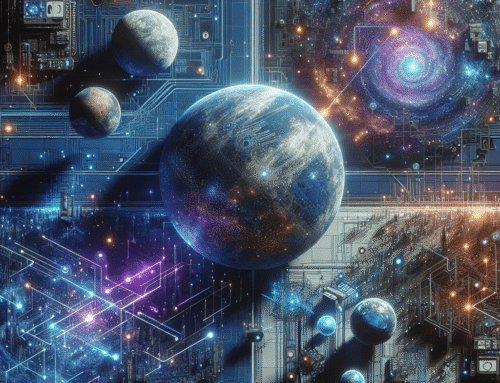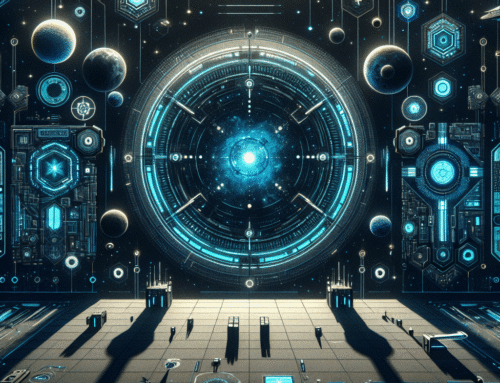Real Business Cycle Theory Insights: Star Atlas Unveiled

Real Business Cycle Theory Insights: Star Atlas Unveiled
At Titan Analytics, we take pride in our role as a Solana validator and a dedicated analytics platform for Star Atlas. Today, we’re diving into an intriguing intersection of economic theory and an exciting gaming universe: Real Business Cycle (RBC) Theory applied to Star Atlas.
Understanding Real Business Cycle Theory
Real Business Cycle Theory is an economic concept that explains fluctuations in economic activity as a response to real shocks, such as changes in technology or preferences. Unlike standard economic theories that attribute recessions and booms to monetary policy or market inefficiencies, RBC suggests that these cycles arise from changes in productivity.
In essence, when new technologies emerge or resources are allocated more efficiently, productivity rises, leading to economic expansion. Conversely, a drop in productivity results in recessions. By understanding these cycles, businesses—and in our case, players—can better navigate varying economic conditions.
Applying RBC Theory to Star Atlas
Now, how does this theoretical framework apply to the multifaceted universe of Star Atlas? This metaverse is not only an immersive gaming experience but also a platform for economic interactions, player decisions, and resource management. Here are some insights drawn from RBC Theory that can help players and investors navigate the Star Atlas economy:
-
Technology and Productivity Shocks: In Star Atlas, the introduction of new ships, upgrades, and tools can be likened to real productive shocks in an economy. Players who invest time and resources into acquiring the latest technology can enjoy enhanced productivity, leading to faster resource gathering or improved combat capabilities.
-
Resource Management and Allocation: As in traditional economies, resource allocation plays a critical role in Star Atlas. Players must strategize on how to best utilize their available resources, akin to businesses deciding how to invest in different sectors. Those who adapt swiftly to in-game economic shifts can thrive, while players who cling to outdated strategies may face setbacks.
-
Market Reactions to Shocks: In Star Atlas, the economy reacts to players’ actions and the introduction of new game elements. If a particular element becomes highly sought-after, we can observe economic booms centered around that aspect—similar to how new technologies can spur growth in traditional markets. Anticipating these trends can provide savvy players with a competitive edge.
- Decentralized Governance as a Coordinating Mechanism: With decentralized governance forming part of the Star Atlas experience, players can influence the economy in collective ways. Just as RBC recognizes the role of preferences and decision-making in business cycles, player behavior—especially governing decisions—can shift economic conditions within the game.
Navigating the Star Atlas Economy with Insight
By applying insights gleaned from Real Business Cycle Theory, players and investors can make more informed decisions within the Star Atlas metaverse. Understanding how technology, resource management, and market dynamics operate can enhance strategic planning and execution.
For those eager to dive deeper into the Star Atlas economic landscape, we invite you to check out Titan Analytics’ Star Atlas data modules. Our analytic tools offer in-depth insights to help you refine your strategies and maximize your success in this vibrant universe.
Explore our modules here: Titan Analytics Star Atlas Data Modules
If you’re looking for personalized insights or have any questions, don’t hesitate to contact us at Titan Analytics Contact Page.
Happy exploring and good luck out there in the cosmos of Star Atlas!




